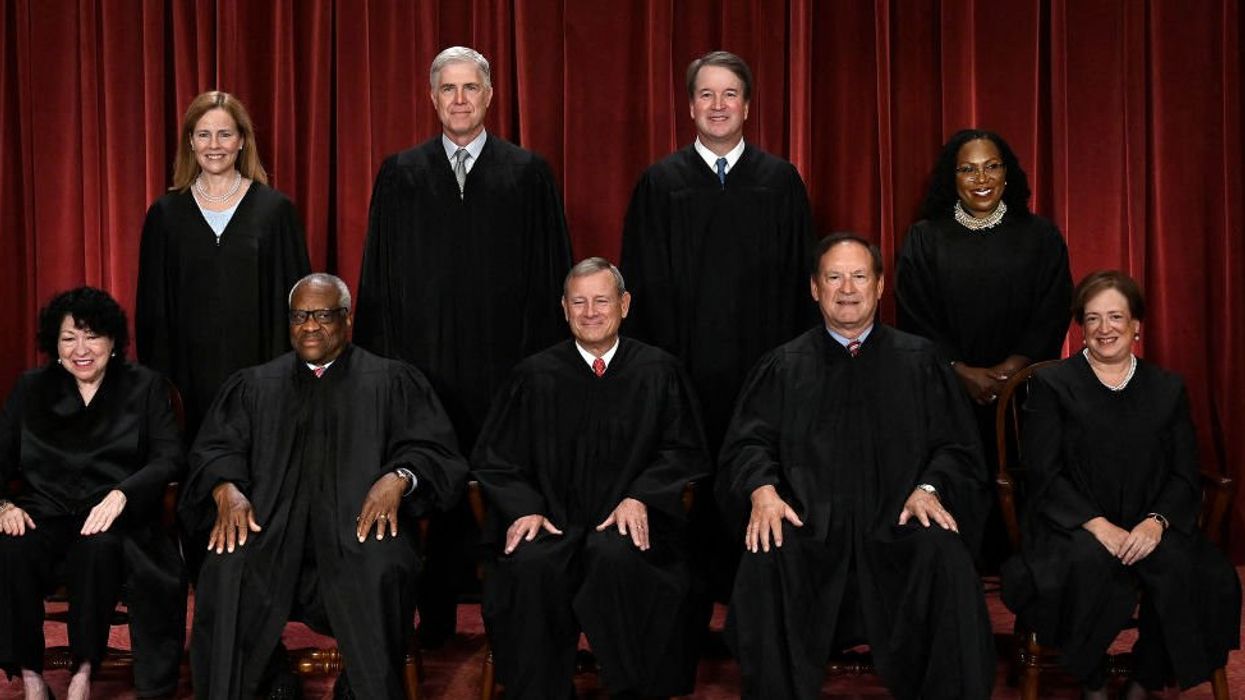
OLIVIER DOULIERY/AFP via Getty Images

The Supreme Court will hear a case in the next term that could remove a significant amount of power from the federal government.
On Monday, the court granted review of Loper Bright Enterprises v. Raimondo.
The case was brought by herring fishermen in New England, challenging the National Marine Fisheries Service's authority to force them to carry a monitor on their vessels who ensures the fishermen comply with federal regulations. Not only do fishermen not have a say in whether monitors are placed on their vessels, but they are forced to pay the monitor's salary.
The industry estimates the regulations reduce their profits by 20%.
The Supreme Court granted a writ of certiorari to answer the following question:
Whether the Court should overrule Chevron or at least clarify that statutory silence concerning controversial powers expressly but narrowly granted elsewhere in the statute does not constitute an ambiguity requiring deference to the agency.
The case, then, could gut the Chevron doctrine, established by the landmark Supreme Court case Chevron U.S.A., Inc. v. Natural Resources Defense Council, Inc. in 1984.
"In Chevron, the Supreme Court set forth a legal test as to when the court should defer to the agency’s answer or interpretation, holding that such judicial deference is appropriate where the agency’s answer was not unreasonable, so long as Congress had not spoken directly to the precise issue at question," Cornell Law explains.
In layman's terms, the Chevron Doctrine significantly empowers the federal government because in the absence of explicit statutory language (for which Congress is responsible), the courts defer to the executive branch's "reasonable" statutory interpretation.
Unsurprisingly, those interpretations almost always favor the federal government, because the definition of "reasonable" has been stretched beyond reason.
The potential implications of Loper Bright cannot be ignored because the government stands to lose a significant amount of power. But as law professor Jonathan Adler explained, the Supreme Court is not likely to overrule Chevron altogether.
"[I]t is more likely the Court merely takes the opportunity to narrow the doctrine and make clear that statutory silences and ambiguities should not be construed as grants of agency authority," Alder reacted.
Ironically, the case made it to the Supreme Court because the D.C. Circuit Court of Appeals applied Chevron deference, ruling 2-1 that the government is justified in its interpretation of the Magnuson-Stevens Act. Thus, they ruled that the monitor program, which hamstrings herring fishermen, is legal.
Justice Ketanji Brown Jackson, who served on the D.C. Circuit Court of Appeals until last June, recused herself from the case.
Like Blaze News? Bypass the censors, sign up for our newsletters, and get stories like this direct to your inbox. Sign up here!